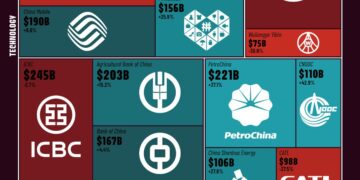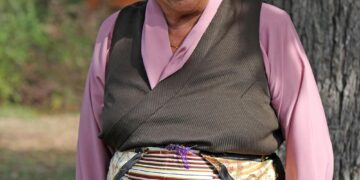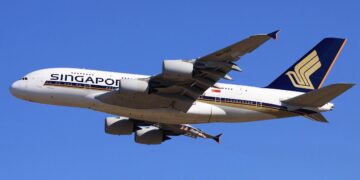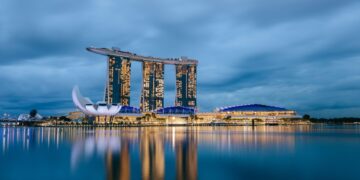Introduction:
Singapore is often lauded for its remarkable achievements in public safety and urban development, but these triumphs come hand-in-hand with a strict approach to law enforcement, particularly in relation to drug-related offenses. With some of the toughest drug laws in the world, the city-state adopts a zero-tolerance policy aimed at deterring drug abuse and trafficking. This article delves into the historical, social, and political factors that have shaped Singapore’s stringent drug legislation. By examining the rationale behind these laws and their broader implications for society, we aim to shed light on the complexities of a system that prioritizes public health and safety at the expense of personal liberties. Through this exploration, we can better understand not only the nuances of Singapore’s drug laws but also the underlying philosophy that drives one of the world’s most disciplined approaches to drug control.
An Overview of Singapore’s Strict drug Legislation
Singapore’s drug legislation is among the strictest in the world,a reflection of its zero-tolerance policy towards drugs. The government maintains that stringent laws are essential in mitigating the threat posed by drug trafficking and abuse. Key facets of this legislation include the death penalty for possession of large quantities of controlled substances, mandatory rehabilitation for offenders, and rigorous enforcement efforts by authorities. This rigid approach is underpinned by a strong societal consensus that prioritizes public health and safety, viewing drug use as a notable contributor to crime and social disorder.
in addition to severe penalties, the law emphasizes preventive measures and community education to combat drug-related issues. The Singaporean approach involves:
- Vigilant surveillance of border control to thwart smuggling attempts.
- Active community outreach programs that educate about the dangers of drug abuse.
- Comprehensive rehabilitation systems aimed at reintegrating offenders into society.
These elements combine to underline Singapore’s comprehensive stance on drug legislation, both deterring potential offenders and fostering a community ethos that advocates for a drug-free society.
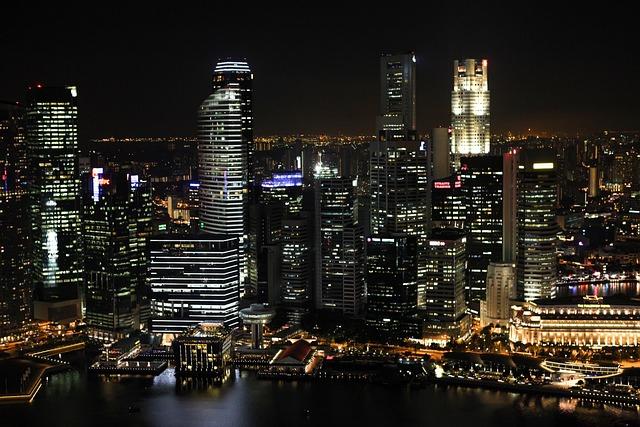
Historical Context: The Evolution of Drug Laws in Singapore
The evolution of drug laws in singapore has been shaped by a series of critical historical events and societal responses to drug-related challenges. From the early 20th century, when colonial authorities began implementing rudimentary regulations to combat opium addiction, the landscape of drug legislation has undergone significant transformation. In the decades following independence in 1965, Singapore experienced a surge in drug abuse, particularly among youth, which prompted the government to adopt stringent measures.This urgency birthed the Misuse of Drugs Act in 1973, a landmark legislation that laid the foundation for the country’s hardcore stance on drug-related offenses.
Central to Singapore’s drug policy is the zero-tolerance approach, which is underpinned by a belief that aggressive enforcement deters drug abuse. Key components of this strategy include:
- Heavy Penalties: Mandatory death sentences for certain drug trafficking offenses.
- Prevention and Rehabilitation: Initiatives aimed at educating citizens about the dangers of drug abuse and rehabilitating offenders.
- Strict Enforcement: Specialized agencies, such as the Central Narcotics Bureau (CNB), are tasked with aggressive policing and monitoring.
This commitment to strict drug laws has emerged from a pragmatic understanding of the socio-economic consequences associated with drug abuse, leading to a perception of drug addiction as a societal menace rather than just a personal failing. as such,the balance that Singapore has sought to strike between enforcement,rehabilitation,and education continues to evolve,reflecting both domestic challenges and global trends in drug policy.

Public Health and Safety: The Rationale Behind Harsh Penalties
Singapore’s stringent drug laws reflect a zero-tolerance approach aimed at preserving public health and safety. The government believes that the severity of punishments acts as a powerful deterrent, considerably curbing drug-related offenses within society. By imposing harsh penalties, including lengthy prison sentences and mandatory death sentences for traffickers, Singapore seeks to communicate a clear message: drug use and trafficking are unacceptable, and violators will face serious consequences.This legal framework is designed to protect the population from the myriad dangers associated with drug abuse, including health crises, crime, and societal destabilization.
To bolster these efforts, the government invests in a multitude of prevention and rehabilitation programs, emphasizing education and support for those affected by substance abuse. Key components of this strategy include:
- Public campaigns to raise awareness about the dangers of drug use.
- Community outreach initiatives to support at-risk populations.
- Rehabilitation facilities dedicated to helping addicts recover and reintegrate into society.
By combining strict legislation with comprehensive support systems, Singapore aims to not only penalize drug offenses but also to address the root causes of drug addiction, ultimately fostering a healthier and safer habitat for all citizens.
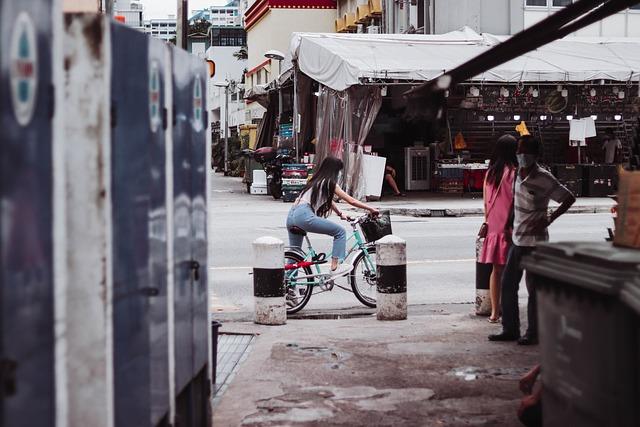
the Role of the Central Narcotics Bureau in enforcement
The Central Narcotics Bureau (CNB) serves as the primary enforcement agency for Singapore’s drug control efforts, operating under the Ministry of Home affairs. this specialized division is charged with the significant responsibility of combating drug trafficking and abuse in the country, employing a multi-faceted approach that includes stringent laws, preventive measures, and rehabilitation programs. The CNB’s proactive enforcement actions aim to disrupt drug supply chains, making it a formidable force against narcotics offenses. It conducts various operations including:
- Routine patrols and surveillance to monitor drug-related activities.
- Joint operations with other law enforcement agencies to enhance efficacy.
- Public education campaigns to raise awareness about the dangers of drug abuse.
To further strengthen their enforcement capabilities, the CNB utilizes an array of advanced technologies and intelligence gathering to stay ahead of drug traffickers. Their efforts are supported by harsh penalties outlined in Singapore’s drug laws, which serve to deter potential offenders. The authority is also equipped to conduct investigations, raids, and arrests, following strict protocols to ensure compliance with the law.Some key statistics highlight the CNB’s effectiveness in maintaining a drug-free environment:
| Year | Arrests Made | Drug seizures (kg) |
|---|---|---|
| 2020 | 3,049 | 3,200 |
| 2021 | 2,790 | 4,500 |
| 2022 | 3,400 | 5,800 |

International Comparisons: How Singapore’s Drug Policies Stand Out
Singapore’s approach to drug policies is frequently enough characterized by its zero-tolerance stance, which significantly diverges from the more lenient approaches observed in many other countries. A key distinction is the implementation of mandatory death penalties for certain drug trafficking offenses. this policy aims to deter drug-related crimes and reflects the nation’s commitment to maintaining a drug-free society. Consequently, Singapore has garnered a reputation for having one of the lowest drug use rates in the world, a feat that many attribute to its stringent laws and strict enforcement mechanisms.
In comparison to various global jurisdictions, Singapore exhibits a unique blend of punitive measures and rehabilitation programs. Many western nations, such as canada and the Netherlands, have embraced more progressive policies, including decriminalization and harm reduction strategies. Conversely, Singapore’s emphasis on enforcement is bolstered by its robust preventive initiatives, such as public education campaigns and regular drug testing for specific communities. This dual focus not only targets drug offenders but also seeks to create a societal norm against drug use, leading to a distinctive policy landscape where enforcement and education coexist intricately.

Recommendations for a Balanced Approach to Drug Issues
To effectively navigate the complexities of drug-related issues, a balanced approach is essential. Policymakers should consider integrating harm reduction strategies that complement strict enforcement measures. These strategies can include:
- Education and Awareness Campaigns: Informing the public about the dangers of drug abuse and the health risks involved.
- Access to Treatment: Providing resources for addiction recovery and mental health support to reduce the need for punitive measures.
- Community Engagement: Involving local communities in decision-making processes to foster collaboration and understanding.
- Evidence-Based Policies: Relying on research to guide legislative decisions, ensuring that laws reflect sound scientific principles.
Furthermore, the establishment of a multidisciplinary task force that includes health professionals, law enforcement, and social workers could enhance the effectiveness of drug management. This task force could focus on:
| Area of Focus | role |
|---|---|
| Prevention | Implementing outreach programs in schools and communities. |
| Intervention | Creating accessible resources for those at risk. |
| Rehabilitation | Developing long-term recovery programs that support reintegration. |
Final Thoughts
Singapore’s stringent drug laws are a reflection of the nation’s commitment to maintaining public safety and social order. Rooted in the country’s historical context, these laws serve as a deterrent against drug abuse and trafficking, which are perceived as existential threats to societal cohesion.While critics argue that such strict measures may infringe on individual rights and overlook the complexities of drug addiction, proponents assert that the hardline approach has been instrumental in keeping drug-related crime rates low. As Singapore continues to navigate the balance between enforcement and rehabilitation, the debate surrounding its drug policies remains a pivotal discussion in the broader context of justice, health, and societal values. The challenges ahead will require nuanced approaches that consider both the efficacy of existing laws and the evolving landscape of drug use and addiction. As Singapore progresses in its efforts to combat drug-related issues, it will be essential to monitor the impact of these laws on both the community and individuals affected by substance abuse.




